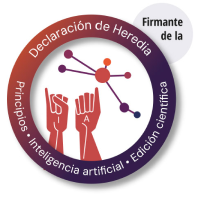 |
 |
 |
 |
 |
 |
 |
 |
 |
 |
 |
 |
Abstract
To evaluate adherence to the provisions of the FAO Code of Conduct for Responsible Fisheries in the Gulf of California, a survey was applied to 148 stakeholders (fishermen, managers, academics and fish farmers).The questionnaire, which included 448 questions related to the Code's terms, was proposed by the World Wildlife Fund for Nature and the National Fisheries Institute of Mexico. For the analysis, a decision table was constructed using a traffic light classification (green, yellow and red) to assess the level of adherence to each provision. Results suggest that fisheries in the Gulf of California moderately follow the Code, but it is necessary to review strategies and actions to improve adherence to some principles.The results are a regional base line on how stakeholders perceive responsible fisheries in the Gulf of California.
References
Caddy, John F. 2002. Limit Reference Points, Traffic Lights, and Holistic Approaches to Fisheries Management with Minimal Stock Assessment Inputs–A Personal Viewpoint. Journal of Fisheries Research (56): 133–137.
––––––––––. 2000. The Code of Conduct for Responsible Fisheries as a Basis for Evaluating Fisheries Research: A Suggested Operational Procedure. Journal of Fisheries Research (48): 205–211.
––––––––––. 1996.A Checklist for Fisheries Resource Management Issues Seen from the Perspective of the FAO Code of Conduct for Responsible Fisheries. FAO Fisheries Circular 917.
––––––––––, J. Eric Reynolds y Gunilla Tegelskär Greig. 2007. Using Questionnaires Based on the Code of Conduct for Responsible Fisheries as Diagnostic Tools in Support of Fisheries Management. FAO Fish Code Review 21.
––––––––––, Miguel A. Cisneros Mata, Alejandro Rodríguez y Fikret Berkes. 2005. Developing a Code of Conduct for Sustainable Gulf of California Fisheries: Report of a Workshop. WWF–Mexico.
Comisión de Pesca Continental para América Latina. 1998. El Código de Conducta para la Pesca Responsable con referencia especial a la pesca continental y el desarrollo de la acuicultura. Comisión de Pesca Continental para América Latina /98/4.
Doulman, David J. 2005. Fisheries Topics: Governance–The FAO Code of Conduct for Responsible Fisheries. FAO Fisheries and Aquaculture Department.
FAO. 2008. Progresos logrados en la aplicación del Código de Conducta para la Pesca Responsable. Décimo tercera reunión de la Comisión Pesca para el Atlántico Centro–Occidental (COPACO). COPACO/ XIII/08/Inf.5.
––––––––––. 2004. Report of the Workshop on the Implementation of the 1995 FAO Code of Conduct for Responsible Fisheries in the Pacific Islands: A Call to Action. Nadi, Fiji, 27–31 October 2003. FAO Fisheries Report 731.
––––––––––. 1995. Code of Conduct for Responsible Fisheries. FAO.
Hernández, A. y W. Kempton. 2003. Changes in Fisheries Management in Mexico: Effects of Increasing Scientific Input and Public Participation. Ocean and Coastal Management (46): 507–526.
Lluch Cota, Salvador E., Eugenio A. Aragón Noriega, Francisco Arreguín Sánchez, David Aurioles Gamboa, Jesús Bautista Romero, Richard C. Brusca, Rafael Cervantes Duarte, Roberto Cortés Altamirano, Pablo del Monte Luna, Alfonso Esquivel Herrera, Guillermo Fernández, Michel E. Hendrickx, Sergio Hernández Vázquez, Hugo Herrera Cervantes, Mati Kahru, Miguel Lavín, Daniel Lluch Belda, Daniel B. Lluch Cota, Juana López Martínez, Silvio G. Marinone, Manuel O. Nevárez Martínez, Sofía Ortega García, Eduardo Palacios Castro, Alejandro Parés Sierra, Germán Ponce Díaz, Mauricio Ramírez Rodríguez, César A. Salinas Zavala, Richard A. Schwartzlose, Arturo P. Sierra Beltrán. 2007. The Gulf of California: Review of Ecosystem Status and Sustainability Challenges. Progress in Oceanography (73): 1–26.
SEMARNAT. 2006. Ordenamiento ecológico marino del golfo de California. http://www.semarnat.gob.mx/queessemarnat/politica_ambiental/ordenamientoecologico/Pages/bitacora_golfo.aspx (22 de noviembre de 2008).
Webster, Janet G. y Jean Collins. 2005. Fisheries information in developing countries. Support to the implementation of the 1995 FAO Code of Conduct for Responsible Fisheries. FAO Fisheries Circular 1006.
Open access policy
The authors who publish in región y sociedad accept the following conditions:
In accordance with the copyright laws, región y sociedad recognizes and respects the authors’ moral rights, as well as the ownership of property rights, which will be transferred to the journal to disseminate the articles in open access. región y sociedad does not charge the authors for submitting and processing articles for publication.
All the texts published by región y sociedad —with no exception— are distributed under a Creative Commons license 4.0 Attribution – Noncommercial (CC BY-NC 4.0 International), which allows third parties to use the publication as long as they mention the works’ authorship and the first publication in this journal.
The authors can enter into independent and additional contractual agreements for the nonexclusive distribution of the version of the article published in región y sociedad (for instance include it into an institutional repository or publish it in a book) as long as they clearly indicate that the work was published for the first time in región y sociedad.
For all the above, the author(s) must send the Letter of transfer of property rights of the first publication duly filled in and signed by the author(s). This letter can be sent by e-mail as a PDF to: region@colson.edu.mx






